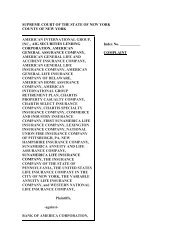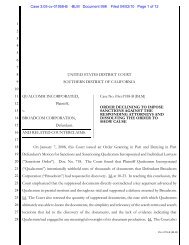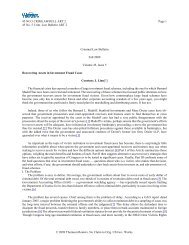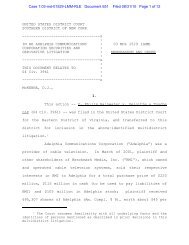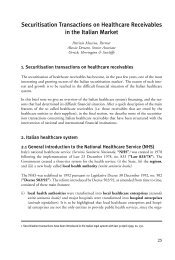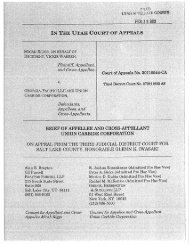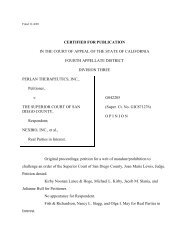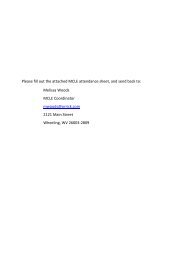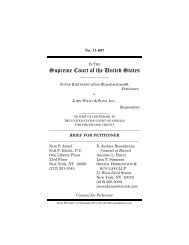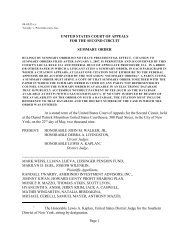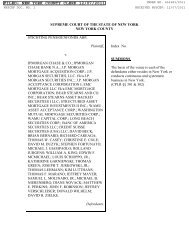Public Charter Schools Borrowing With Tax-Exempt Bonds, Second ...
Public Charter Schools Borrowing With Tax-Exempt Bonds, Second ...
Public Charter Schools Borrowing With Tax-Exempt Bonds, Second ...
Create successful ePaper yourself
Turn your PDF publications into a flip-book with our unique Google optimized e-Paper software.
1. Expenditure and allocation of bond proceeds.<br />
a. Making sure that bond proceeds are actually spent on qualified tax-exempt<br />
bond purposes.<br />
b. Making sure that bond proceeds are spent within the time allotted for<br />
“temporary period” investment of bond proceeds (usually three years from<br />
issuance), or within two years or 18 months, where applicable, in order to<br />
qualify for the 2-year or 18-month spend down arbitrage rebate exceptions.<br />
c. If moneys other than bond proceeds are also to be spent on the project<br />
(e.g., equity or funds from a taxable financing), making a proper and timely<br />
allocation of the bond proceeds to qualified tax-exempt bond purposes by<br />
the later of 18 months from when the money was spent or from the date<br />
the project was completed (in order to justify qualifying for tax-exemption<br />
in the first place and/or to preserve the opportunity to use a portion of the<br />
project for purposes that may not qualify for tax-exempt financing).<br />
d. Keeping detailed records of the foregoing with respect to the original bonds<br />
and any refunding bonds for as long as such bonds (or refunding bonds)<br />
are outstanding plus three years, in case of IRS audit, and to facilitate<br />
refinancings.<br />
2. Investment of bond proceeds.<br />
a. Making sure that bond proceeds are invested in a manner that complies<br />
with the bond documents and with the arbitrage rules.<br />
b. Making sure that any earnings resulting from investing bond proceeds<br />
or pledged funds at an investment yield in excess of bond yield are rebated<br />
to the U.S. Treasury in accordance with applicable tax requirements<br />
(except to the extent a specific rebate exception applies).<br />
c. Keeping detailed records of the foregoing with respect to the original bonds<br />
and any refunding bonds for as long as such bonds (or refunding bonds)<br />
are outstanding plus three years.<br />
3. Use of the bond financed project.<br />
a. Making sure that impermissible private use does not occur as a result of<br />
arrangements to use the bond financed project pursuant to management<br />
or service contracts, leases or subleases, changes in use and any other<br />
56



